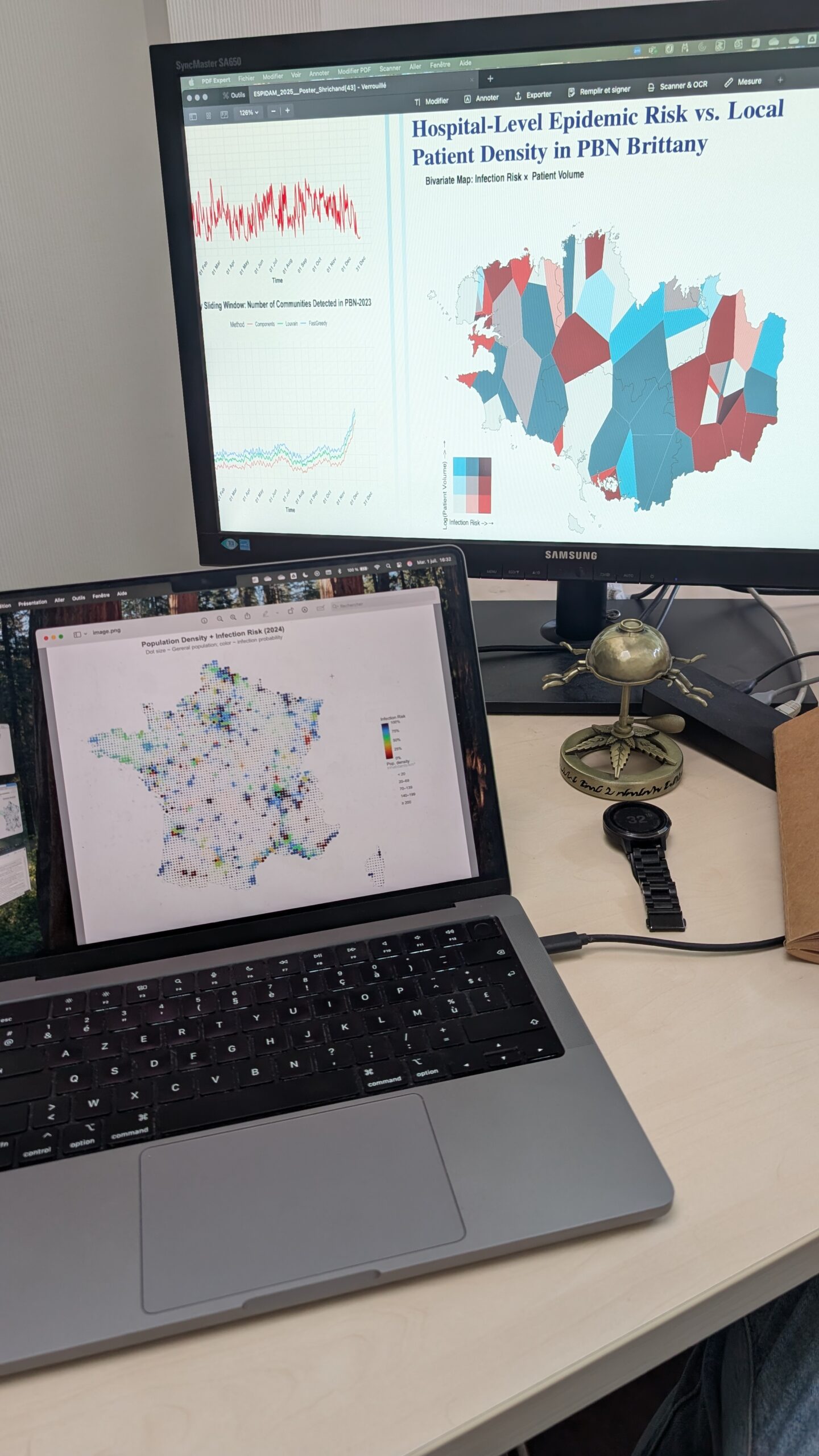The COVID-19 crisis revealed a critical truth: our hospitals possess remarkable yet finite flexibility. Across the globe, healthcare systems stretched beyond their theoretical limits to absorb waves of patients, converting wards and reallocating resources on an unprecedented scale. Here in France, the number of ICU beds quadrupled from 5,000 to over 20,000 at the height of the crisis, a testament to this adaptability.
But how far can this flexibility go? And how can we better prepare for the next public health emergency?
As part of the ambitious PReViX project, our team at the EHESP School of Public Health in Rennes is seeking a talented and motivated PhD candidate to tackle these very questions. This is a unique opportunity to contribute to research with a significant societal impact, helping to inform decision-makers and strengthen our collective resilience against future respiratory virus threats.
The Challenge: Modeling Hospital Flexibility
This PhD project aims to quantify the adaptability of our hospital system and identify the key levers that allow it to cope with a sudden surge in demand. The core research question is: How can hospital systems adapt to a pandemic-driven surge, and how can we provide reliable, timely information to prevent system overload?
The successful candidate will:
- Analyze real-world data: Conduct a retrospective analysis of the French hospital discharge database (PMSI) from 2019 to 2021 to understand how hospitals managed the COVID-19 waves. This includes documenting effective surge capacity, changes in non-COVID activities, and the diversion of patients.
- Identify key adjustment levers: Investigate the factors that influence hospital capacity, such as patient length of stay, staffing, and the availability of specific medical technologies.
- Develop an innovative model: Build a healthcare capacity model to simulate the system’s potential for adaptation under different scenarios. The model’s outputs will be translated into concrete public health outcomes, such as the number of hospitalizations, deaths, and life-years lost.
Who We Are Looking For
This interdisciplinary project is ideal for a candidate with a strong quantitative background. We encourage applications from students with a Master’s degree in:
- Physics, applied mathematics, or computer science.
- Econometrics.
- Public health, health economics, or medicine, provided you can demonstrate advanced skills in biostatistics and programming.
An Exceptional Research Environment
The PhD position is based at the EHESP School of Public Health in Rennes, a prestigious graduate school offering a dynamic and stimulating academic environment. You will be supervised by Professor Pascal Crépey, an epidemiologist specializing in infectious disease modeling, and Professor Nicolas Sirven, an economist specializing in healthcare organization.
As a doctoral student at EHESP, you will:
- Work alongside leading experts in public health.
- Benefit from access to state-of-the-art resources and dedicated training programs to develop your research and communication skills.
- Enjoy life in Rennes, a vibrant and historic city in the heart of Brittany, known for its high quality of life and easy access to Paris.
How to Apply
Interested candidates should submit their applications as soon as possible, but no later than Monday, July 21, 2025.
Your application must include:
- A CV (with the names of two referees).
- A cover letter.
- Your Master’s degree transcript.
- Your Master’s internship report (if available).
Please send your application and any requests for further information to:
Professor Pascal Crépey pascal.crepey@ehesp.fr
Want to know more about PReViX ? click here.


